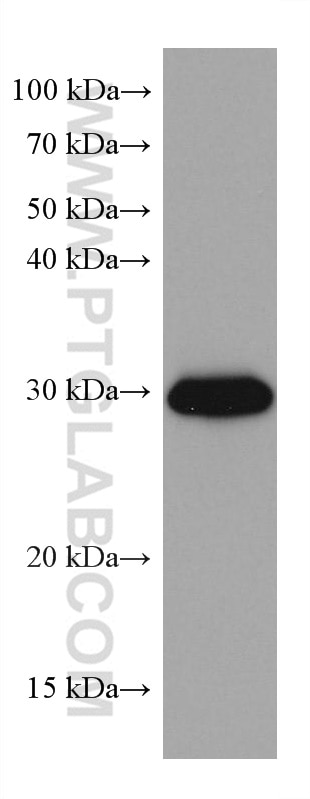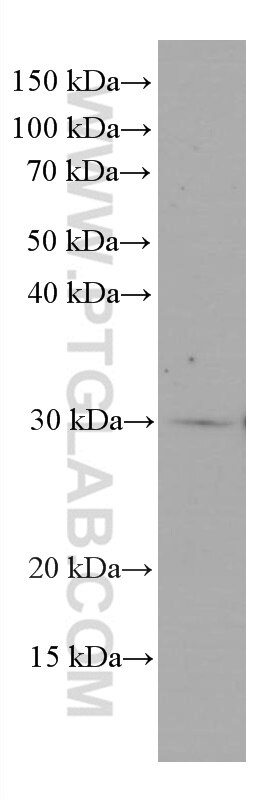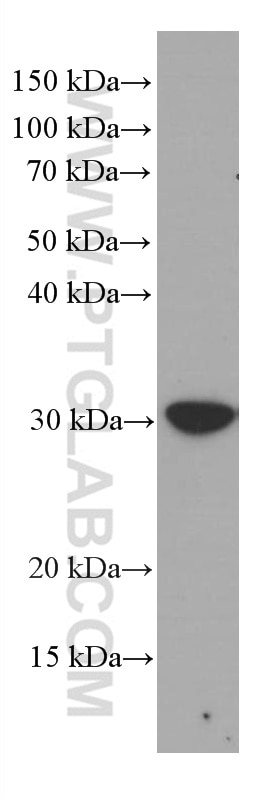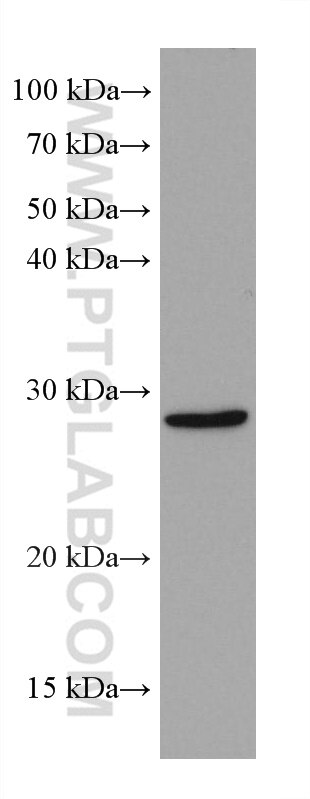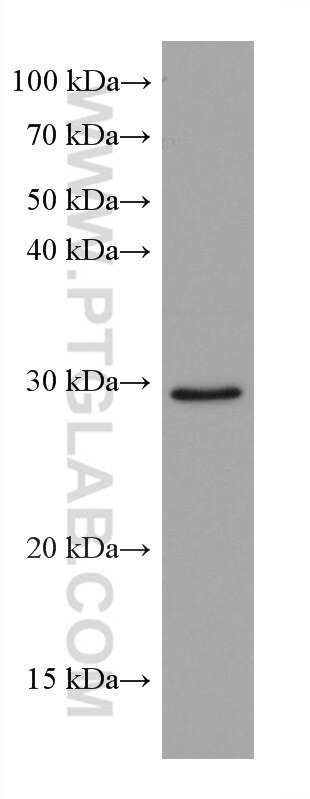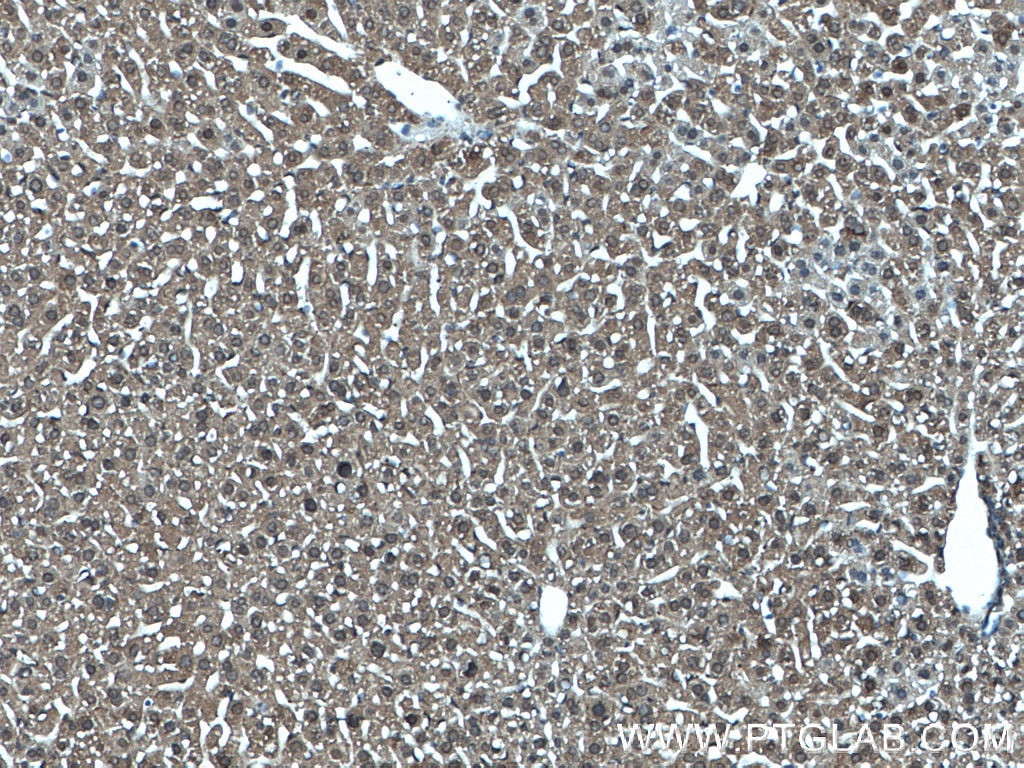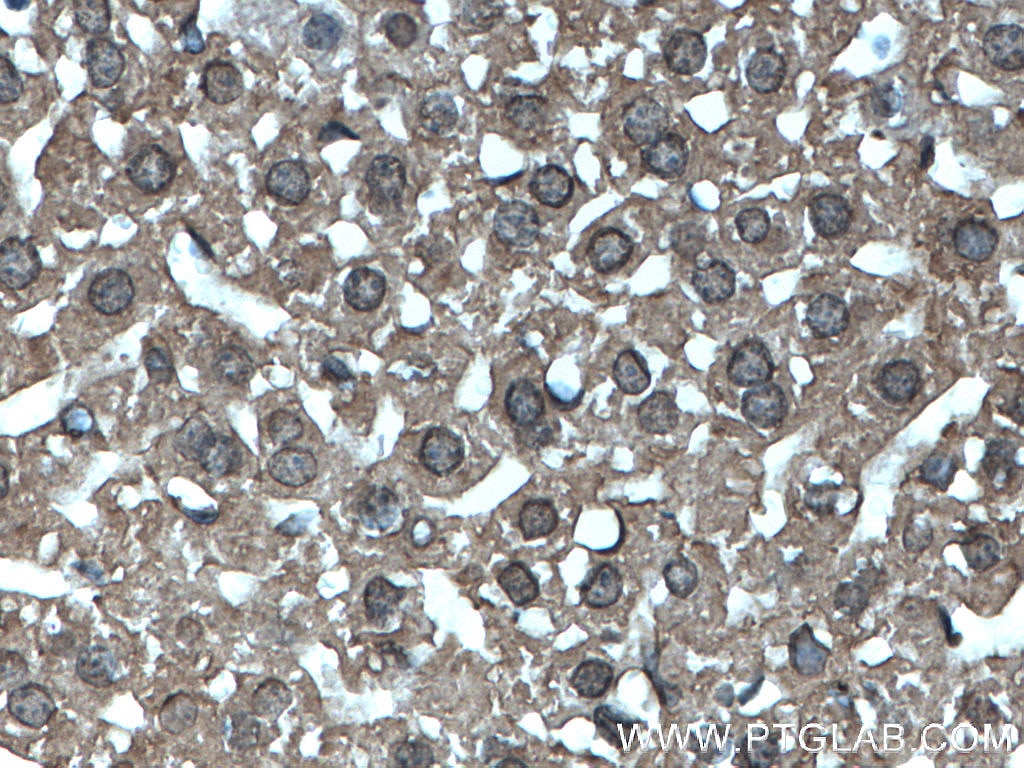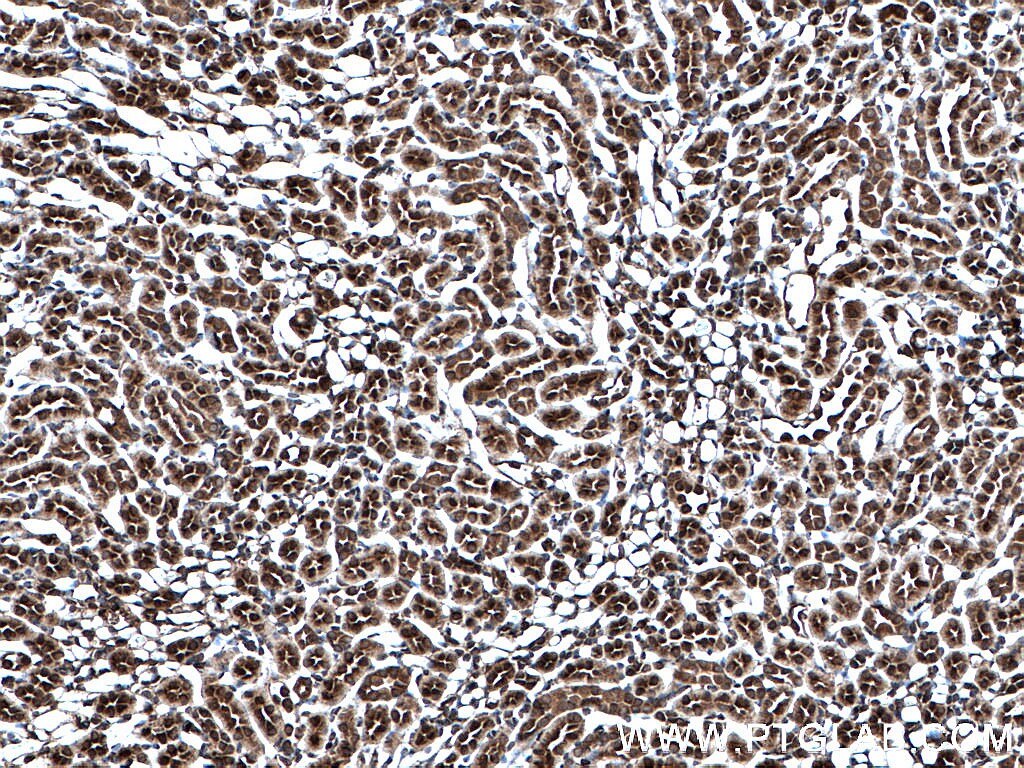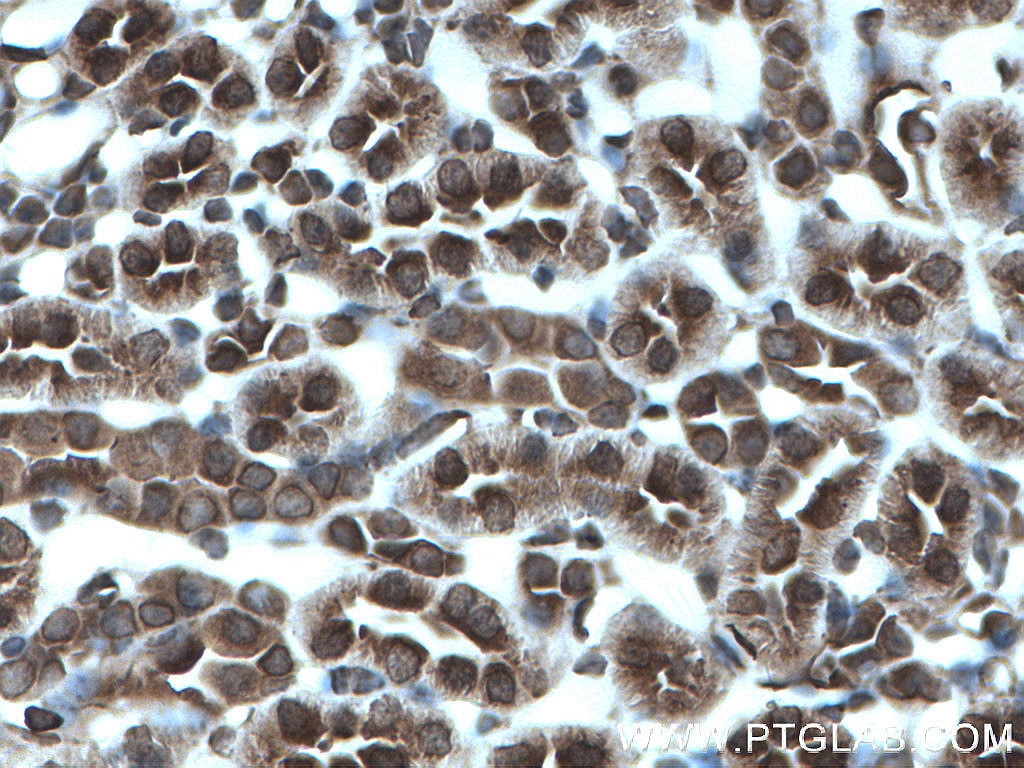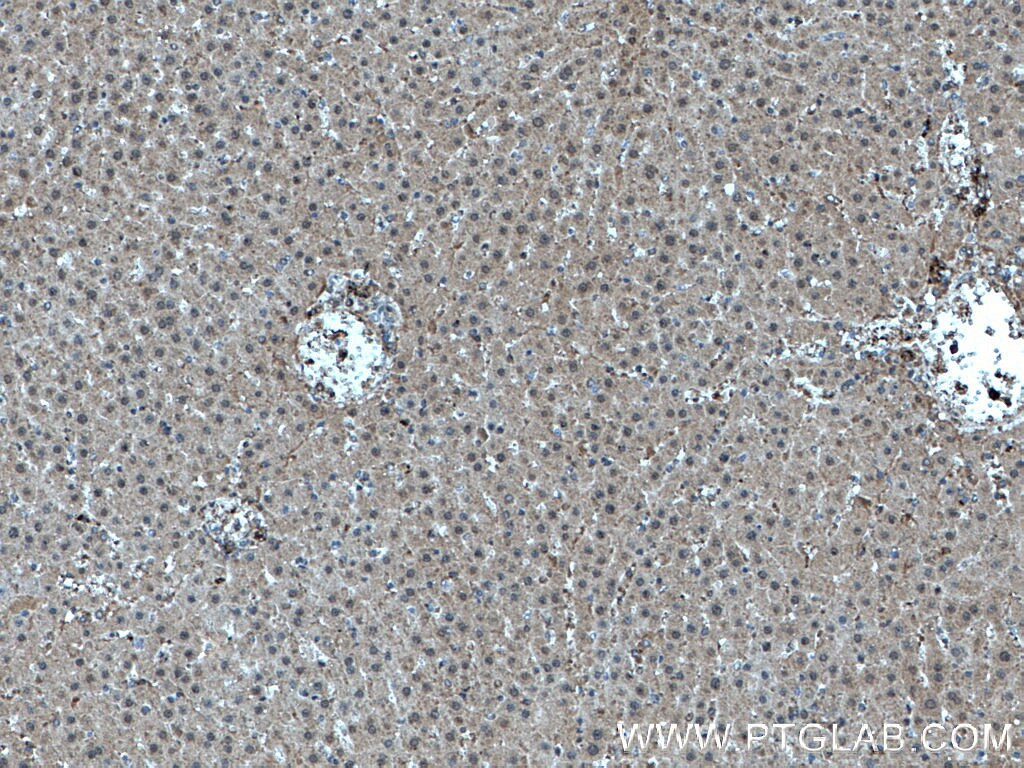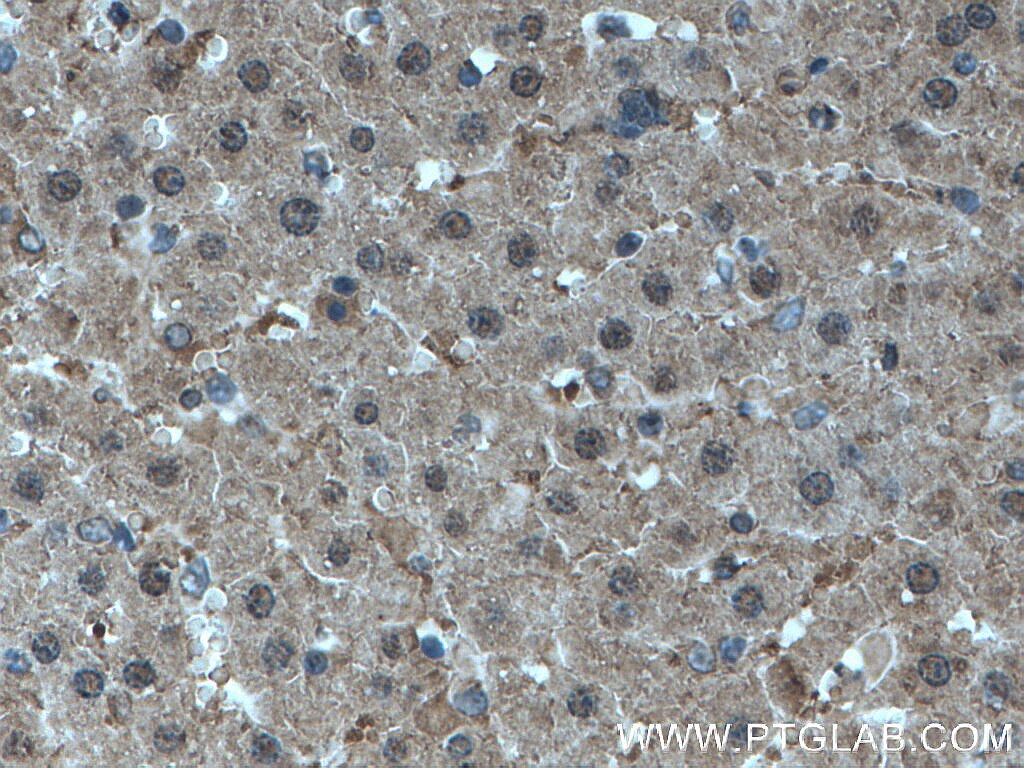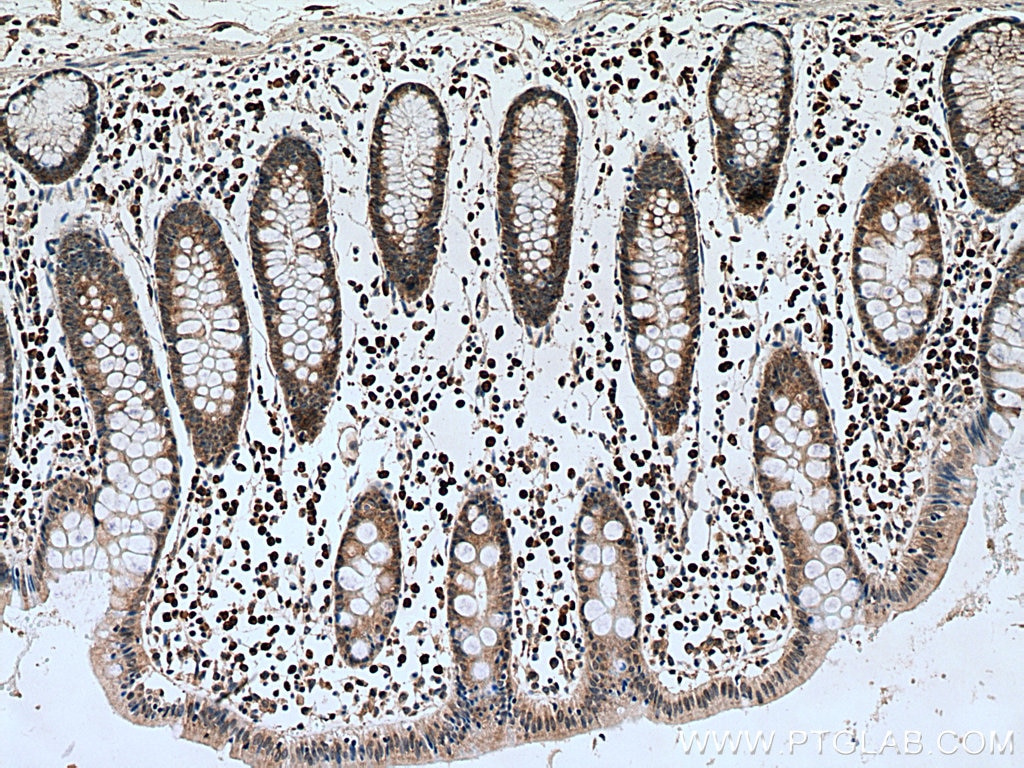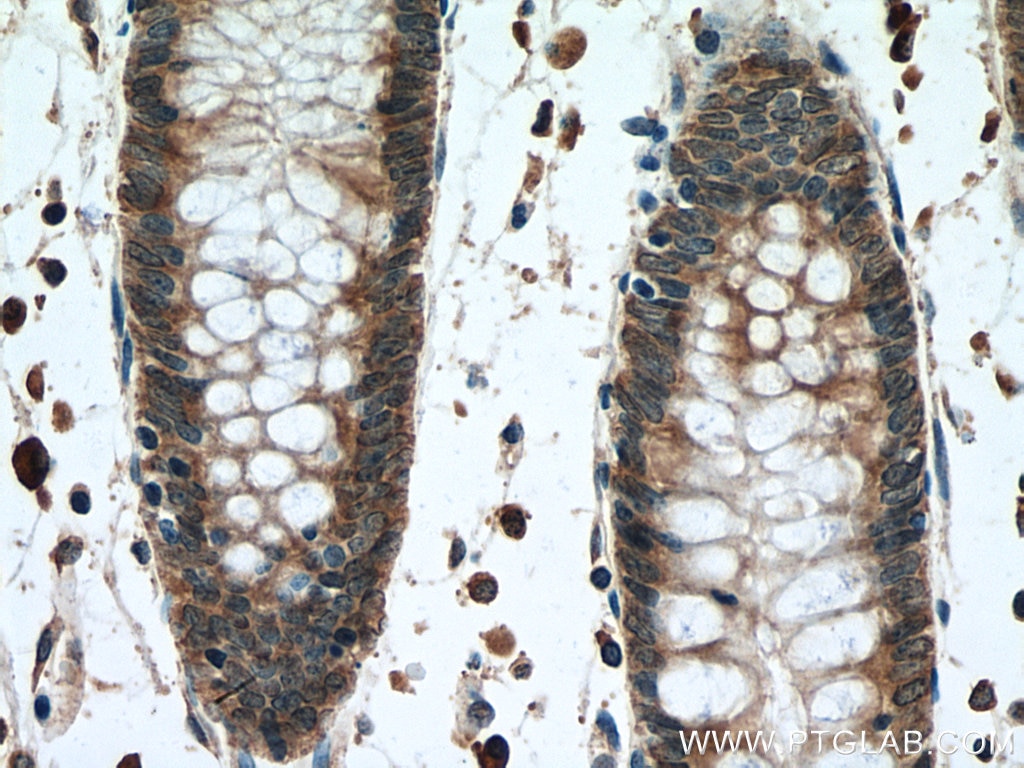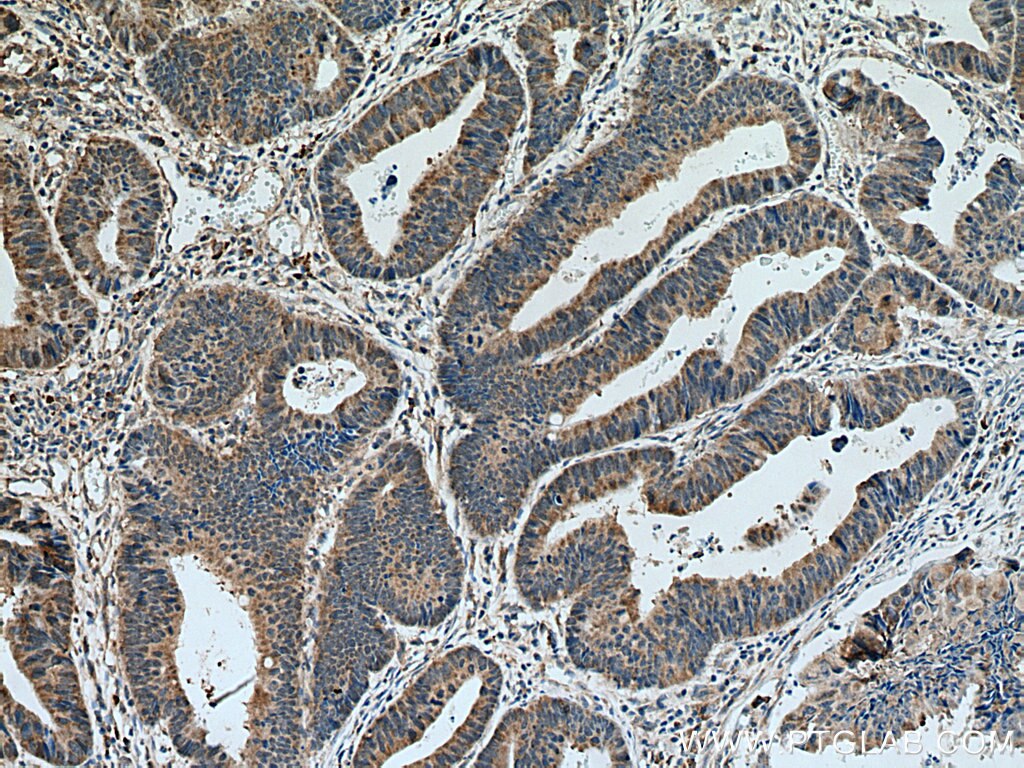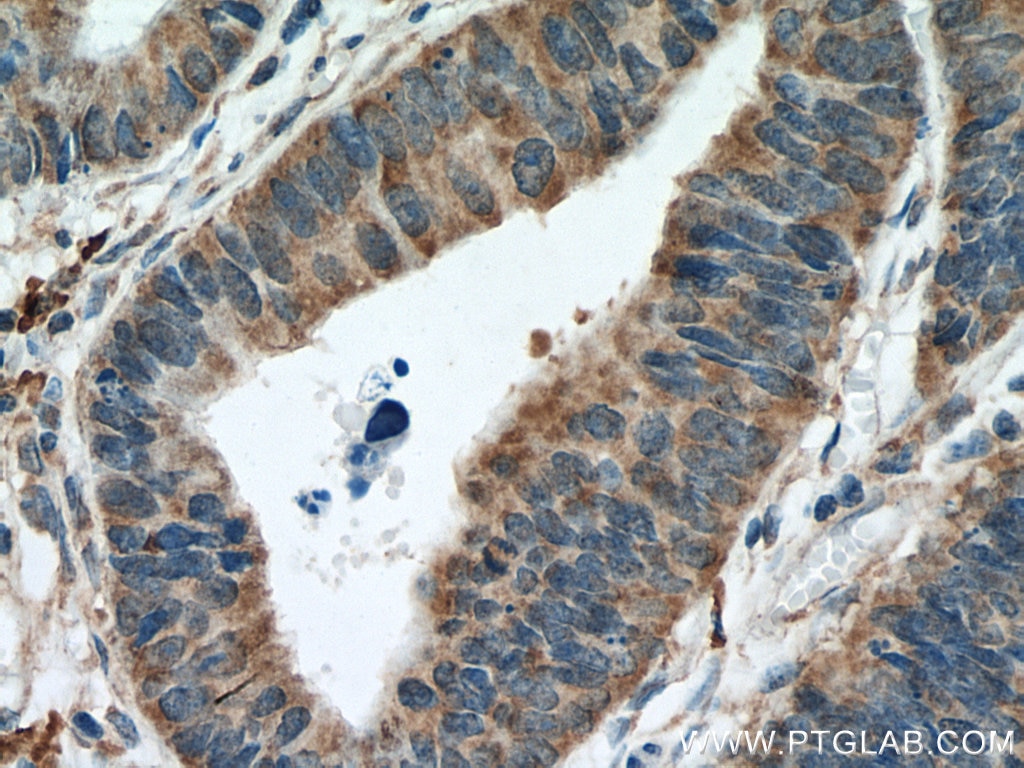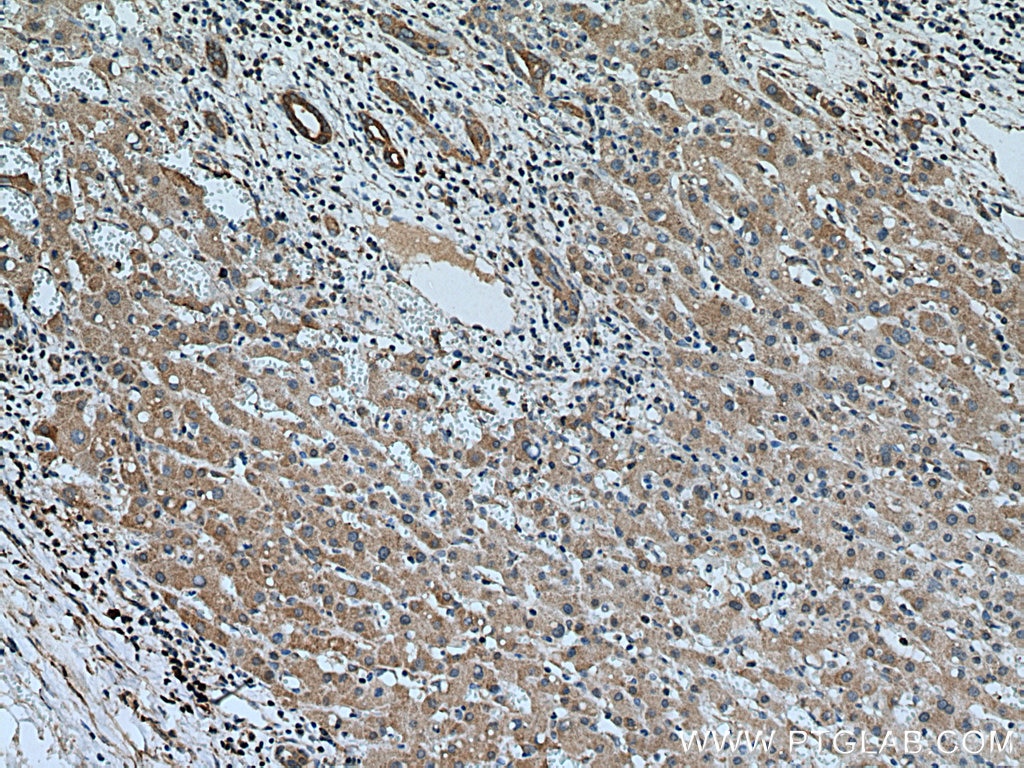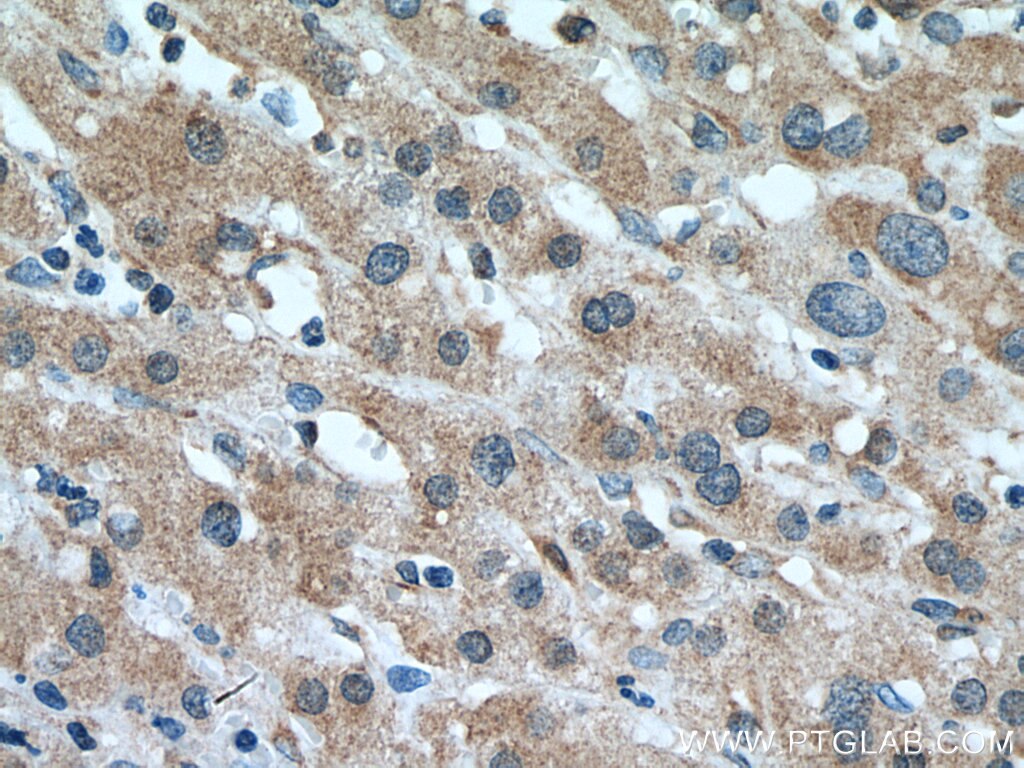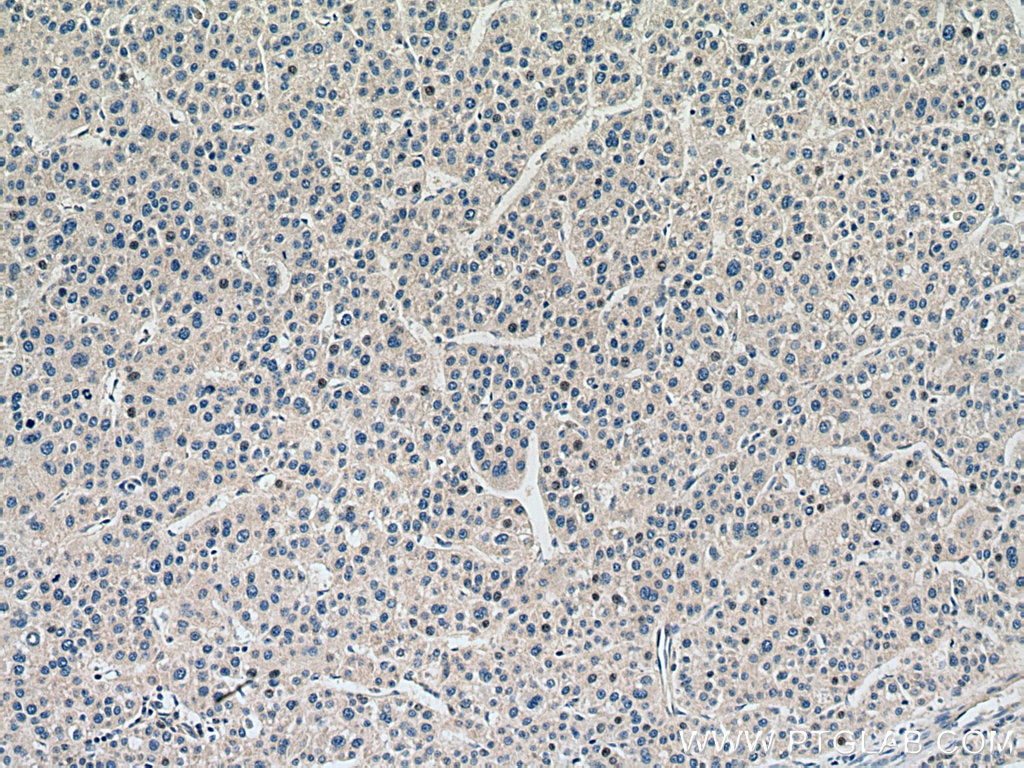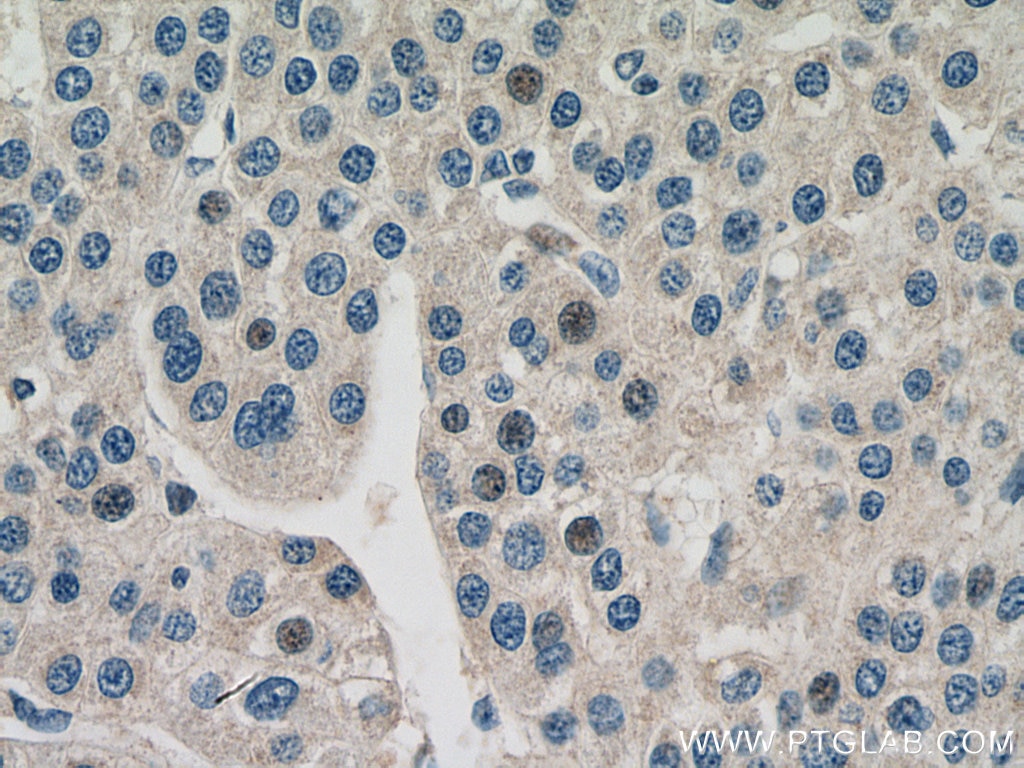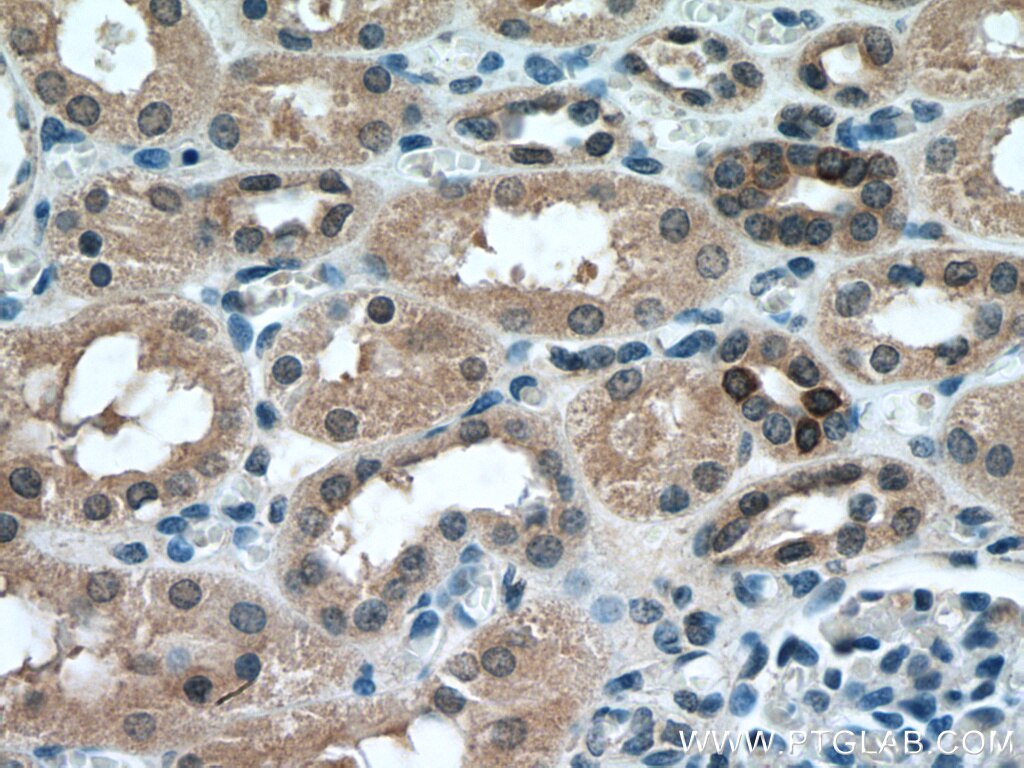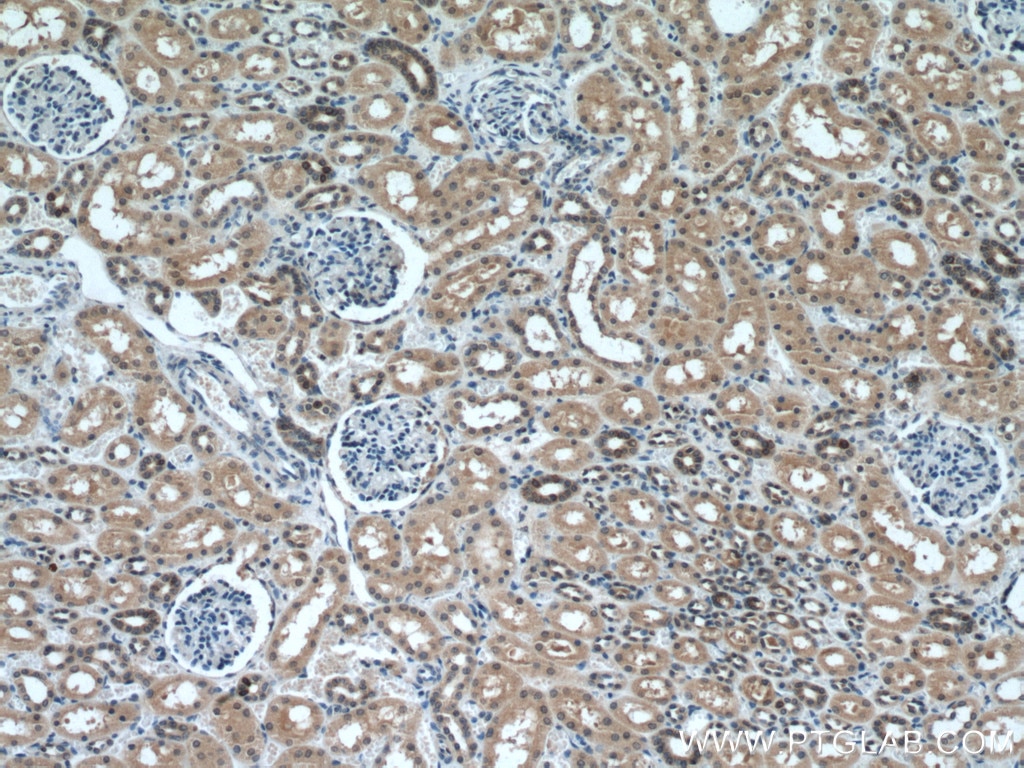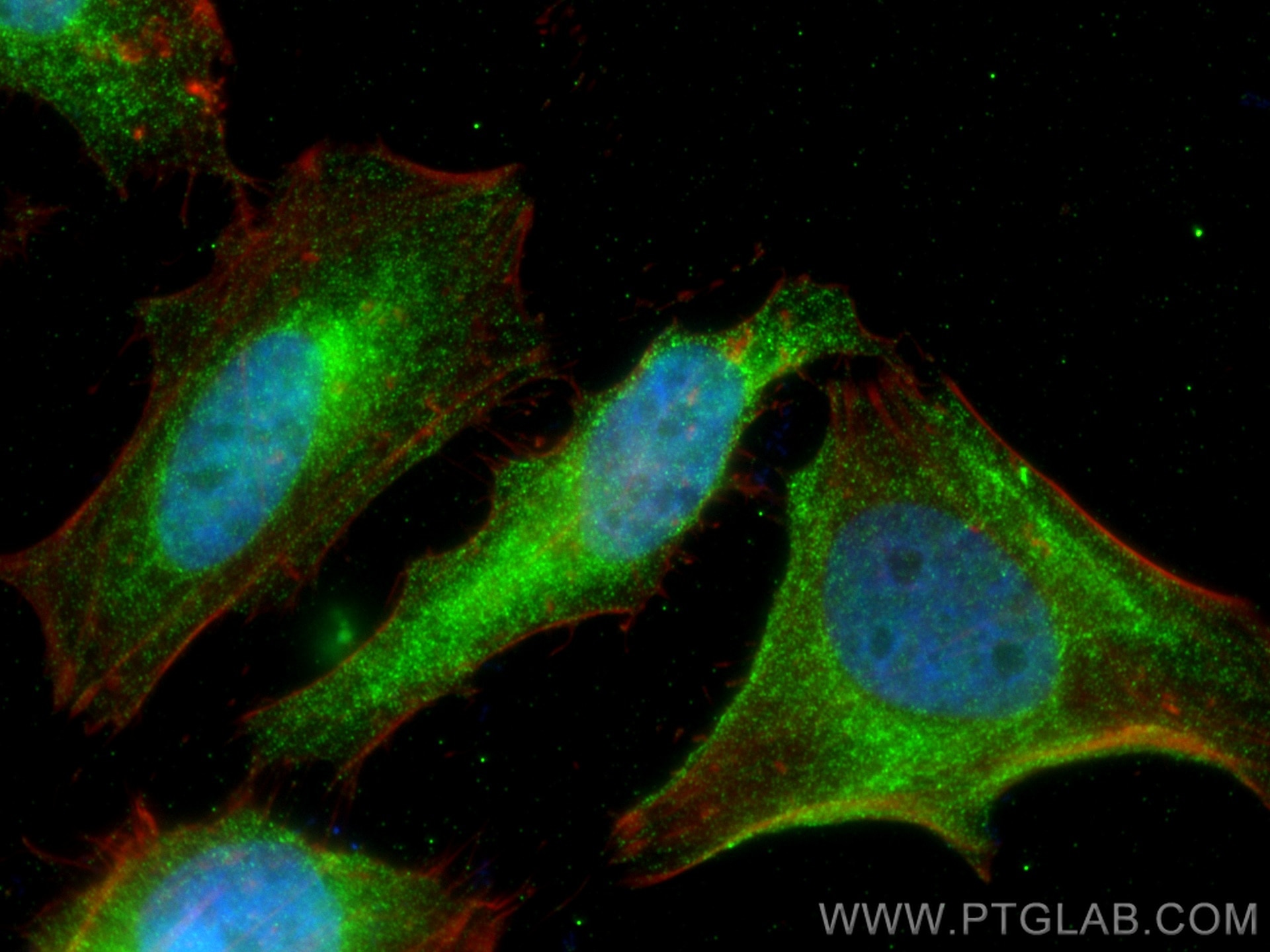WB Figures
WB analysis of NIH/3T3 using 66706-1-Ig (same clone as 66706-1-PBS)
NIH/3T3 cells were subjected to SDS PAGE followed by western blot with 66706-1-Ig (MTAP antibody) at dilution of 1:20000 incubated at room temperature for 1.5 hours. This data was developed using the same antibody clone with 66706-1-PBS in a different storage buffer formulation.
WB analysis of Raji using 66706-1-Ig (same clone as 66706-1-PBS)
Raji cells were subjected to SDS PAGE followed by western blot with 66706-1-Ig (MTAP antibody) at dilution of 1:1000 incubated at room temperature for 1.5 hours. This data was developed using the same antibody clone with 66706-1-PBS in a different storage buffer formulation.
WB analysis of HT-29 using 66706-1-Ig (same clone as 66706-1-PBS)
HT-29 cells were subjected to SDS PAGE followed by western blot with 66706-1-Ig (MTAP antibody) at dilution of 1:1000 incubated at room temperature for 1.5 hours. This data was developed using the same antibody clone with 66706-1-PBS in a different storage buffer formulation.
WB analysis of HCT 116 using 66706-1-Ig (same clone as 66706-1-PBS)
HCT 116 cells were subjected to SDS PAGE followed by western blot with 66706-1-Ig (MTAP antibody) at dilution of 1:20000 incubated at room temperature for 1.5 hours. This data was developed using the same antibody clone with 66706-1-PBS in a different storage buffer formulation.
WB analysis of HSC-T6 using 66706-1-Ig (same clone as 66706-1-PBS)
HSC-T6 cells were subjected to SDS PAGE followed by western blot with 66706-1-Ig (MTAP antibody) at dilution of 1:20000 incubated at room temperature for 1.5 hours. This data was developed using the same antibody clone with 66706-1-PBS in a different storage buffer formulation.
IHC Figures
IHC staining of mouse liver using 66706-1-Ig (same clone as 66706-1-PBS)
Immunohistochemical analysis of paraffin-embedded mouse liver tissue slide using 66706-1-Ig (MTAP antibody) at dilution of 1:200 (under 10x lens. Heat mediated antigen retrieval with Tris-EDTA buffer (pH 9.0). This data was developed using the same antibody clone with 66706-1-PBS in a different storage buffer formulation.
IHC staining of mouse liver using 66706-1-Ig (same clone as 66706-1-PBS)
Immunohistochemical analysis of paraffin-embedded mouse liver tissue slide using 66706-1-Ig (MTAP antibody) at dilution of 1:200 (under 40x lens. Heat mediated antigen retrieval with Tris-EDTA buffer (pH 9.0). This data was developed using the same antibody clone with 66706-1-PBS in a different storage buffer formulation.
IHC staining of mouse kidney using 66706-1-Ig (same clone as 66706-1-PBS)
Immunohistochemical analysis of paraffin-embedded mouse kidney tissue slide using 66706-1-Ig (MTAP antibody) at dilution of 1:200 (under 10x lens. Heat mediated antigen retrieval with Tris-EDTA buffer (pH 9.0). This data was developed using the same antibody clone with 66706-1-PBS in a different storage buffer formulation.
IHC staining of mouse kidney using 66706-1-Ig (same clone as 66706-1-PBS)
Immunohistochemical analysis of paraffin-embedded mouse kidney tissue slide using 66706-1-Ig (MTAP antibody) at dilution of 1:200 (under 40x lens. Heat mediated antigen retrieval with Tris-EDTA buffer (pH 9.0). This data was developed using the same antibody clone with 66706-1-PBS in a different storage buffer formulation.
IHC staining of rat liver using 66706-1-Ig (same clone as 66706-1-PBS)
Immunohistochemical analysis of paraffin-embedded rat liver tissue slide using 66706-1-Ig (MTAP antibody) at dilution of 1:200 (under 10x lens. Heat mediated antigen retrieval with Tris-EDTA buffer (pH 9.0). This data was developed using the same antibody clone with 66706-1-PBS in a different storage buffer formulation.
IHC staining of rat liver using 66706-1-Ig (same clone as 66706-1-PBS)
Immunohistochemical analysis of paraffin-embedded rat liver tissue slide using 66706-1-Ig (MTAP antibody) at dilution of 1:200 (under 40x lens. Heat mediated antigen retrieval with Tris-EDTA buffer (pH 9.0). This data was developed using the same antibody clone with 66706-1-PBS in a different storage buffer formulation.
IHC staining of human colon cancer using 66706-1-Ig (same clone as 66706-1-PBS)
Immunohistochemical analysis of paraffin-embedded human colon cancer tissue slide using 66706-1-Ig (MTAP antibody) at dilution of 1:1000 (under 10x lens). Heat mediated antigen retrieval with Tris-EDTA buffer (pH 9.0). This data was developed using the same antibody clone with 66706-1-PBS in a different storage buffer formulation.
IHC staining of human colon cancer using 66706-1-Ig (same clone as 66706-1-PBS)
Immunohistochemical analysis of paraffin-embedded human colon cancer tissue slide using 66706-1-Ig (MTAP antibody) at dilution of 1:1000 (under 40x lens). Heat mediated antigen retrieval with Tris-EDTA buffer (pH 9.0). This data was developed using the same antibody clone with 66706-1-PBS in a different storage buffer formulation.
IHC staining of human colon cancer using 66706-1-Ig (same clone as 66706-1-PBS)
Immunohistochemical analysis of paraffin-embedded human colon cancer tissue slide using 66706-1-Ig (MTAP antibody) at dilution of 1:1000 (under 10x lens). Heat mediated antigen retrieval with Tris-EDTA buffer (pH 9.0). This data was developed using the same antibody clone with 66706-1-PBS in a different storage buffer formulation.
IHC staining of human colon cancer using 66706-1-Ig (same clone as 66706-1-PBS)
Immunohistochemical analysis of paraffin-embedded human colon cancer tissue slide using 66706-1-Ig (MTAP antibody) at dilution of 1:1000 (under 40x lens). Heat mediated antigen retrieval with Tris-EDTA buffer (pH 9.0). This data was developed using the same antibody clone with 66706-1-PBS in a different storage buffer formulation.
IHC staining of human liver cancer using 66706-1-Ig (same clone as 66706-1-PBS)
Immunohistochemical analysis of paraffin-embedded human liver cancer tissue slide using 66706-1-Ig (MTAP antibody) at dilution of 1:1000 (under 10x lens). Heat mediated antigen retrieval with Tris-EDTA buffer (pH 9.0). This data was developed using the same antibody clone with 66706-1-PBS in a different storage buffer formulation.
IHC staining of human liver cancer using 66706-1-Ig (same clone as 66706-1-PBS)
Immunohistochemical analysis of paraffin-embedded human liver cancer tissue slide using 66706-1-Ig (MTAP antibody) at dilution of 1:1000 (under 40x lens). Heat mediated antigen retrieval with Tris-EDTA buffer (pH 9.0). This data was developed using the same antibody clone with 66706-1-PBS in a different storage buffer formulation.
IHC staining of human liver cancer using 66706-1-Ig (same clone as 66706-1-PBS)
Immunohistochemical analysis of paraffin-embedded human liver cancer tissue slide using 66706-1-Ig (MTAP antibody) at dilution of 1:1000 (under 10x lens). Heat mediated antigen retrieval with Tris-EDTA buffer (pH 9.0). This data was developed using the same antibody clone with 66706-1-PBS in a different storage buffer formulation.
IHC staining of human liver cancer using 66706-1-Ig (same clone as 66706-1-PBS)
Immunohistochemical analysis of paraffin-embedded human liver cancer tissue slide using 66706-1-Ig (MTAP antibody) at dilution of 1:1000 (under 40x lens). Heat mediated antigen retrieval with Tris-EDTA buffer (pH 9.0). This data was developed using the same antibody clone with 66706-1-PBS in a different storage buffer formulation.
IHC staining of human kidney using 66706-1-Ig (same clone as 66706-1-PBS)
Immunohistochemical analysis of paraffin-embedded human kidney tissue slide using 66706-1-Ig (MTAP antibody) at dilution of 1:200 (under 10x lens. Heat mediated antigen retrieval with Tris-EDTA buffer (pH 9.0). This data was developed using the same antibody clone with 66706-1-PBS in a different storage buffer formulation.
IHC staining of human kidney using 66706-1-Ig (same clone as 66706-1-PBS)
Immunohistochemical analysis of paraffin-embedded human kidney tissue slide using 66706-1-Ig (MTAP antibody) at dilution of 1:200 (under 40x lens. Heat mediated antigen retrieval with Tris-EDTA buffer (pH 9.0). This data was developed using the same antibody clone with 66706-1-PBS in a different storage buffer formulation.

